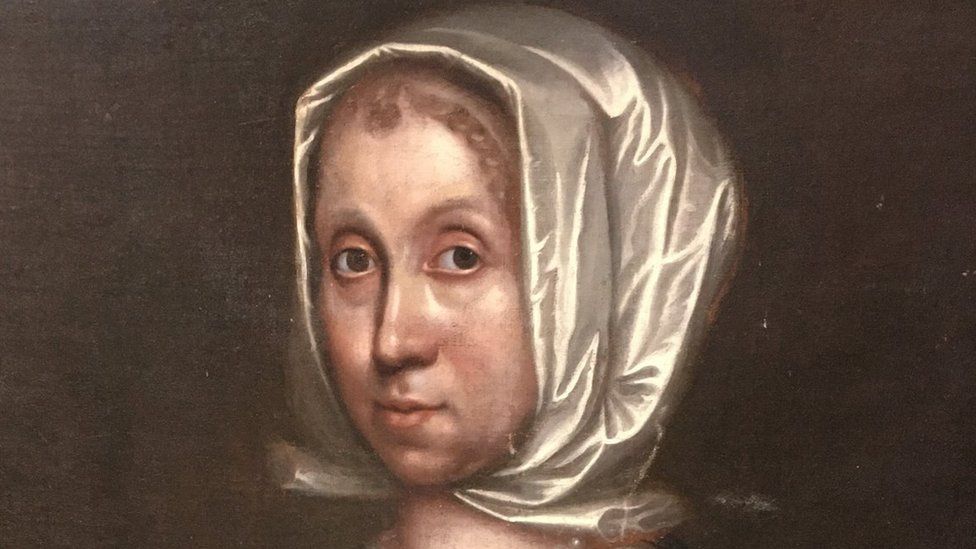Bad Bungle
Tutti but not Frutti.
- Joined
- Oct 13, 2018
- Messages
- 4,132
- Location
- The Chilterns
Applying Betteridge's law of headlines, the answer is "no" and this will be a very short thread. Indulge me please:
I first read the story in a Ladybird book complete with an illustration: Oliver Cromwell (an Adventure in History) in Primary School, which related how as a baby the future Lord Protector was abducted from his crib by a monkey and carried on to the roof of his Grandfather's house (Hitchingbrooke). I accepted this , like so much at Primary School, without question (like how prevalent were thieving monkeys in Huntingdon in 1600 ?)
As this nugget of information wasn't applied or didn't come up in conversation, I forgot about it. Years later I was doing A Level History (Tudors & Stuarts) and some-one ask the Teacher "I read this Ladybird book about Cromwell as a baby ..." to much general amusement. But it did make me wonder why the normally informative and respected Ladybird book series would include such a tale ?
Moving on to a few nights ago and I was delving into the excellent Strange Victoriana by Jan Bondeson (articles from the Illustrated Police News) and the section on animals. Dwarf killed by cats, lady hugged by a polar bear, child killed by pig, child killed by donkey, child eaten by dog, many children carried off by eagles and finally baby snatched by a monkey called "Hulch" (1870 Somerset). So simian snatching is not unknown, but how old was the Cromwell story ?
Of course I find some-one had already asked the question 10 years ago and Ted Vallance had a dedicated blogpost "Oliver Cromwell and the Monkey". So the Ladybird books probably lifted the story from Through Great Britain and Ireland With Cromwell (1912) by the Children Authoress H.E. Marshall. To push the tale further back, I paraphrase from the blog:
"Thomas Cromwell’s Oliver Cromwell and His Times (1822) lists the story as one of the many extravagant claims inserted into hostile biographies of his ancestor (referring here to Mark Noble’s Memoirs of the Protectoral House of Cromwell (1787)). Noble claimed that he received this story from ‘the rev. dr. Lort’s M.S.S.’, who in turn received this from ‘Mr. Edw. Audley".
Audley was a draper who owned the house in Huntingdon where Oliver Cromwell was born. It is speculated he may have inherited a collection of documents from the house or was simply relating Huntingdon oral tradition. So the monkey story may be true - although it is not mentioned in one of the earliest anti-Cromwell biographies, Thomas Heath’s Flagellum (1663).
Anyone from Huntingdon ?
https://skeptics.stackexchange.com/questions/5095/was-oliver-cromwell-kidnapped-by-a-monkey
https://edwardvallance.wordpress.com/2009/07/28/oliver-cromwell-and-the-monkey/
I first read the story in a Ladybird book complete with an illustration: Oliver Cromwell (an Adventure in History) in Primary School, which related how as a baby the future Lord Protector was abducted from his crib by a monkey and carried on to the roof of his Grandfather's house (Hitchingbrooke). I accepted this , like so much at Primary School, without question (like how prevalent were thieving monkeys in Huntingdon in 1600 ?)
As this nugget of information wasn't applied or didn't come up in conversation, I forgot about it. Years later I was doing A Level History (Tudors & Stuarts) and some-one ask the Teacher "I read this Ladybird book about Cromwell as a baby ..." to much general amusement. But it did make me wonder why the normally informative and respected Ladybird book series would include such a tale ?
Moving on to a few nights ago and I was delving into the excellent Strange Victoriana by Jan Bondeson (articles from the Illustrated Police News) and the section on animals. Dwarf killed by cats, lady hugged by a polar bear, child killed by pig, child killed by donkey, child eaten by dog, many children carried off by eagles and finally baby snatched by a monkey called "Hulch" (1870 Somerset). So simian snatching is not unknown, but how old was the Cromwell story ?
Of course I find some-one had already asked the question 10 years ago and Ted Vallance had a dedicated blogpost "Oliver Cromwell and the Monkey". So the Ladybird books probably lifted the story from Through Great Britain and Ireland With Cromwell (1912) by the Children Authoress H.E. Marshall. To push the tale further back, I paraphrase from the blog:
"Thomas Cromwell’s Oliver Cromwell and His Times (1822) lists the story as one of the many extravagant claims inserted into hostile biographies of his ancestor (referring here to Mark Noble’s Memoirs of the Protectoral House of Cromwell (1787)). Noble claimed that he received this story from ‘the rev. dr. Lort’s M.S.S.’, who in turn received this from ‘Mr. Edw. Audley".
Audley was a draper who owned the house in Huntingdon where Oliver Cromwell was born. It is speculated he may have inherited a collection of documents from the house or was simply relating Huntingdon oral tradition. So the monkey story may be true - although it is not mentioned in one of the earliest anti-Cromwell biographies, Thomas Heath’s Flagellum (1663).
Anyone from Huntingdon ?
https://skeptics.stackexchange.com/questions/5095/was-oliver-cromwell-kidnapped-by-a-monkey
https://edwardvallance.wordpress.com/2009/07/28/oliver-cromwell-and-the-monkey/


